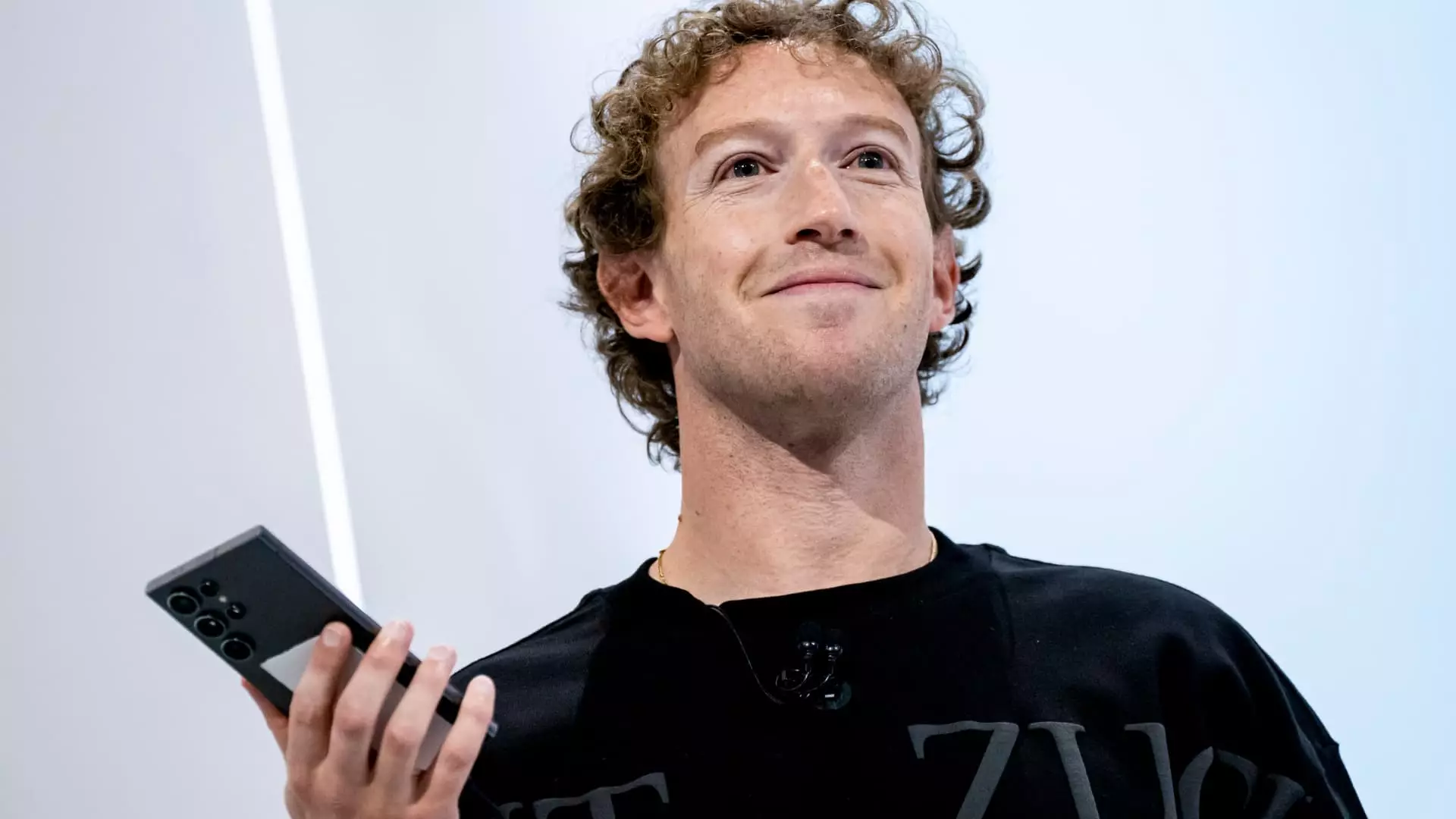Tech giants are constantly at the forefront of innovation and competition, each striving to top the other with the latest advancements and features. Recently, Facebook’s parent company Meta and its CEO, Mark Zuckerberg, have turned their focus toward Apple, voicing concerns about a distinct stagnation in innovation on the part of the tech powerhouse. In a candid conversation on Joe Rogan’s podcast, Zuckerberg articulated his views about Apple’s approach to technology and market practices, shining a light on what he perceives as an uninspired trajectory since the iconic Steve Jobs era.
Zuckerberg acknowledged the profound impact the iPhone has had on global communication and daily life, noting that it brought mobile technology to the masses. He credited the device with enabling a myriad of remarkable technological advancements, stating, “On the one hand, [the iPhone has] been great, because now pretty much everyone in the world has a phone.” However, he contrasted this praise with a critical stance on Apple’s current lack of significant innovation. His claim that the company has seemingly halted its creative momentum suggests that Apple is relying heavily on the foundations laid by Steve Jobs rather than fostering new breakthroughs.
This sentiment raises a vital question: Is Apple resting on its laurels? The longevity of the iPhone’s success places immense pressure on the company to deliver regular and meaningful upgrades. As Apple continues to iterate on existing technology rather than pushing the envelope into uncharted territories, they risk becoming a victim of their early successes—similar to a once-popular band that fails to evolve.
The Monetization Strategies of Apple
Zuckerberg’s interview also delved into the business strategies employed by Apple, particularly its pricing and monetization tactics. He pointed out that consumers are taking longer to upgrade their devices due to the perceived minimal improvements in new models: “So how are they making more money as a company? Well, they do it by basically, like, squeezing people.” This observation reflects not only on Apple’s sales strategies but also on the expectations of consumers who are now more discerning and reluctant to invest in iterations that do not offer substantial advancements.
Moreover, Zuckerberg’s criticism of Apple’s 30% tax on app developers further illustrates a broader concern related to monopolistic practices within the tech industry. This strategy effectively stifles competition and innovation, ultimately leading to a market that could become homogenized and devoid of exciting new offerings. By creating barriers for entry and imposing high fees, Apple may inadvertently curtail the creativity of numerous developers, impacting the overall health of the industry.
Privacy and Security as a Shield
In the podcast, Zuckerberg also scrutinized Apple’s position on user privacy and security. Apple maintains that its stringent protocols are essential for protecting consumer information, a claim Zuckerberg contests. He argues that the insecurity present stems from poor infrastructure, suggesting that the company could implement better security measures to allow third-party innovations to flourish in harmony with their ecosystem. This aspect of the conversation indicates a larger debate about the balance between safety and openness within tech platforms—a complex issue that often finds itself at the intersection of user experience and corporate profit.
Finally, Zuckerberg offered insights on Apple’s Vision Pro headset, which has garnered mixed reviews and disappointing sales. While noticing that Apple made a bold move with the product, he also implied that the execution fell short of expectations. This not only reflects on Apple’s innovation journey but also showcases a potential trend where both companies are vying for dominance in emerging technologies.
Mark Zuckerberg’s candid critique of Apple shines a light on critical issues of innovation, monetization, and market strategy in the tech industry. His observations serve as a potent reminder that the pressure to innovate and adapt is unrelenting in the world of technology and that companies must remain ever vigilant and proactive to retain their status as industry leaders. As consumers demand more from their devices and experiences, the expectation for groundbreaking innovation will only grow— and with it, the scrutiny directed at corporations that have the means to fulfill those demands.



Leave a Reply